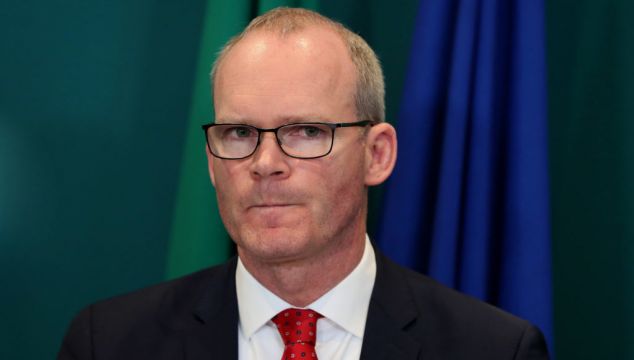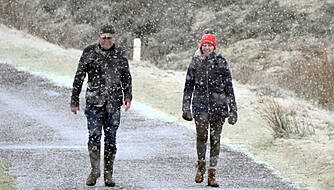Ireland's Defence Forces cannot adequately protect from an attack on the nation should one happen, Minister for Foreign Affairs and Defence Simon Coveney has said.
The Minister was speaking after the publication of a high-level report from the Commission on the Defence Forces, which said there is a growing risk of Ireland’s land, sea and air being used by belligerent powers to attack its nearest neighbours.
Mr Coveney said he accepted “virtually everything” in the report. It was “probably the most significant report” into the Defence Forces in the last 50 years, he told RTÉ radio’s News at One.
The report was “a very credible, hard-hitting honest report that the Government now needs to find a way of responding to,” Mr Coveney said.
It was going to be “hugely challenging” for the Government to respond to the report, he added. The report did not “pull its punches” and he hoped it would now lead to a very positive debate about the Defence Forces.
Today, after 13 months of very intensive work, the Commission has published its report. We hope that this will provide a platform for grounded debate on defence and security matters leading to clear political decisions on the future of the Defence Forces. https://t.co/AJaescxTpW pic.twitter.com/aQIOFkCKsa
Advertisement— Commission on the Defence Forces (@IRLCoDF) February 9, 2022
Mr Coveney said it would take “four to five months” for the report to be analysed in great detail.
Asked if there was the political will to address the concerns, he responded: “What we spend on defence in Ireland and what we have spent does reflect poorly on the priority of defence in Ireland.”
In order to ensure the Defence Forces were properly resourced, the Minister said he would have to make political arguments to spend “potentially hundreds of millions of euro” when the money could be spent elsewhere.
In the report, Ireland’s Defence Forces was compared with eight other countries of similar populations, all of whom spend “dramatically more than we do”.
There was a strong argument that the Defence Forces were under-resourced for what they were expected to do, added Mr Coveney.
Former Defence Forces officer, Cathal Berry TD, told the same programme that the report had the potential to be “transformational” if the resources were made available.
A simple measure would be to allow the two military representative organisations to affiliate with the Irish Congress of Trade Unions on the issue of pay. Military representatives had been “locked out” of national pay talks for decades, which had led to a widening gap between military pay and other pay.
Most severe threats
In the report, the activities of Russia and China, along with Islamic and right-wing extremists were named as the most severe threats to Irish security, according to The Irish Times.
The commission, in the report, recommends urgent reform of the military, particularly the Naval Service and Air Corps.
It also makes a series of recommendations to encourage more women and minorities to join and to improve working conditions for existing members.
Under its most ambitious proposals, the current €1.1 billion defence budget would increase by 300 per cent, the Naval Service would be made up of 12 ships and the Air Corps would be equipped with long-range transport aircraft and a squadron of between 12 and 24 fighter jets to police Irish skies.







